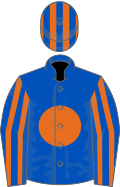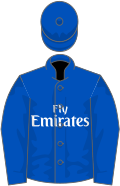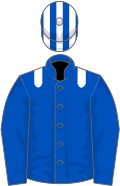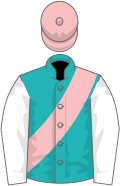| Class | Group 2 |
|---|---|
| Location | Rowley Mile Newmarket, England |
| Inaugurated | 1946 |
| Race type | Flat / Thoroughbred |
| Sponsor | Tattersalls |
| Website | Newmarket |
| Race information | |
| Distance | 1 mile (1,609 metres) |
| Surface | Turf |
| Track | Straight |
| Qualification | Two-year-old colts and geldings |
| Weight | 9 st 2 lb Penalties 3 lb for G1 / G2 winners |
| Purse | £125,000 (2025) 1st: £70,888 |
| 2025 | ||
 |  |  |
| Bow Echo | Humidity | Action |
| Previous years | ||
|---|---|---|
| 2024 | ||
 |  |  |
| Wimbledon Hawkeye | Royal Playwright | Angelo Buonarroti |
| 2023 | ||
 |  |  |
| Ghostwriter | Al Musmak | Capulet |
| 2022 | ||
 |  |  |
| The Foxes | Dubai Mile | Flying Honours |
| 2021 | ||
 |  |  |
| Royal Patronage | Coroebus | Unconquerable |
| 1990-1988 | ||
|---|---|---|
| 1990 | ||
 |  |  |
| Mujaazif | Jahafil | Stone Mill |
| 1989 | ||
 |  |  |
| Digression | Bridal Toast | Air Music |
| 1988 | ||
 |  |  |
| High Estate | Samoan | Frequent Flyer |

The Royal Lodge Stakes is a Group 2 flat horse race in Great Britain open to two-year-old colts and geldings. It is run on the Rowley Mile at Newmarket over a distance of 1 mile (1,609 metres), and it is scheduled to take place each year in late September.







































